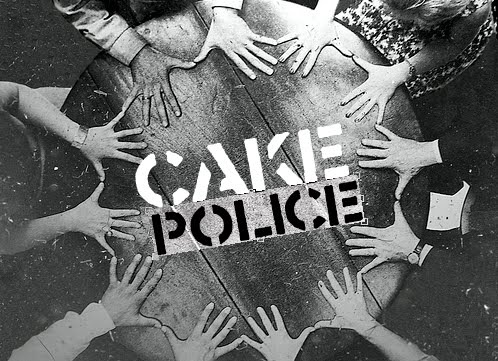
This goes along very well with the quote just posted by sheilaownscommunism. I am currently reading a book I would like to recommend to all of you Cake Deputies out there, titled Violence, by Slavoj Zizek. In the book, Zizek discusses the three different forms he sees violence taking, and how over-attention to one blights our ability to recognize others. The three forms of violence Zizek proposes in the book are subjective (crime and terrorism), objective (racism, hate-speech, discrimination), and systemic (the catastrophic effects of political and economic systems). If you haven't read any of Zizek's work before, this is not a bad one to jump in with. The book, as with most of Zizek's work, is smart, funny, thought-provoking, and generally pretty easy to digest; which is impressive given the amount of ground he covers in such little space (the book is only 217 short pages). So there it is, your homework for the week. Be good boys and gurls and get that shit done ASAP. Then we can meet back here and talk about it? Cake Police Book Club anyone?? Anyways, chew on that, and while you're masticating, here's an excerpt:
"One thing that never ceases to surprise the naive ethical consciousness is how the very same people who commit terrible acts of violence towards their enemies can can display warm humanity and gentle care for the members of their own group. Isn't it strange that the same soldier who slaughtered innocent civilians was ready to sacrifice his life for his unit? That the commander who ordered the shooting of hostages can that same evening write a letter to his family full of sincere love? This limitation of our ethical concern to a narrow circle seems to run counter to our spontaneous insight that we are all humans, with the same basic hopes, fears, and pains, and therefore the same justified claim to respect and dignity. Consequently, those who constrain the scope of their ethical concern are in a profound sense inconsistent, "hypocritical" even. To put it in Habermasian terms, they are involved in a pragmatic contradiction, since they violate the ethical norms which sustain their own speech community. Refusing the same basic ethical rights to those outside our community as to those inside it is something that does not come naturally to a human being. It is a violation of our spontaneous ethical proclivity. It involves brutal repression and self-denial."

you've got to be kidding me. talk about perfect timing
ReplyDeletewe all just went to a screening of the pervert's guide to cinema this evening for writing the essay class!
was this comment as funny as i think it is?
ReplyDeleteNope. Zizek "presented" this film.
ReplyDeletei hope you have seen a pervert's guide. it came for free in last years film issue of the believer.
ReplyDeleteOne day I hope to write a book on the overlooked challenges that come with being human. Being the only conscious, self-aware animal creates a feeling of isolation, I think, that other animals don't experience (then again, what do non-conscious animals experience? separate question). To account for this, we look at people outside of our constructed groups (family, clan, race, etc) as less human than us, or an entirely different animal. That might explain why its easy to reconcile the slaughtering of one group of people in contrast to the humility, kindness shown to another.
ReplyDeleteIn an attempt to balance this, I treat strangers with utmost respect and treat my friends and family like shit.